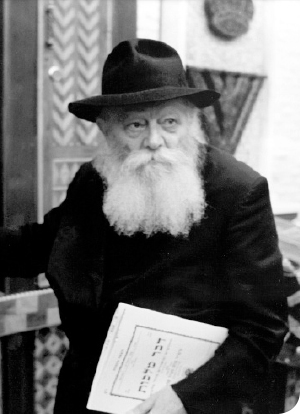From Chapter Fourteen of Rabbi Shloma Majeski’s Likkutei Mekoros, Volume 2. (Underlined text is the compiler’s emphasis .)
 Translated by Boruch Merkur
Translated by Boruch Merkur
14. Among the things mentioned in Meseches Sota that will transpire in Ikvisa D’Meshicha, at the threshold [literally, “heels”] of the Messianic redemption [when you can already hear “the footsteps of Moshiach” approaching], is that “p’nei ha’dor k’p’nei ha’kelev – the face of the generation is like the face of the dog.”
All details enumerated in this passage of Talmud, “b’p’nimiusam – in their inner aspect,” are actually blessings. The blessing concealed within the likening of “the face of the generation” to that of a “dog” is that the period leading up to the Messianic redemption (especially through our avoda of disseminating the wellsprings of Chassidus outward) evokes in the entire generation the “hunger” for “the word of G-d” (see Amos 8:11) [hunger being characteristic of a dog]. In fact, the hunger is so great that it is described as “they did not experience being satiated,” for as much as they attain and consume, they are overridden with hunger; “give, give” they demand, pleading for more and more.
The notion of bringing out the inner blessing is connected with the beginning of the sidra [Parshas R’ei]: “Behold (r’ei) I give before you today a blessing and a curse.” This verse alludes to the fact that even the curse will be transformed into a blessing. […]
And through the transformation of Parshas R’ei, we segue straight to the next sidra, “Shoftim v’shotrim (judges and officers) you shall appoint for you at all of your city gates” – that there will be “I shall return your judges as in former times,”* in the true and complete redemption through Moshiach Tzidkeinu, may he come and redeem as very soon.
(From the address of Shabbos Parshas R’ei 5728; Likkutei Sichos
Vol. 9, pg. 105)
NOTES:
*Footnote 74: Yeshayahu 1:26 – for the “return [of] your judges” will “precede the advent of Moshiach,” as in the conclusion of the verse, “afterwards you shall be called City of Righteousness, etc.” (cited in Rambam’s Perush HaMishnayos (Sanhedrin 1:3)).
Regarding the commentary of Radbaz on Rambam (Laws of Sanhedrin 14:12), “It is possible that he (Moshiach**) will bestow smicha upon the Great Court (Beis Din HaGadol)” [i.e., Moshiach will actually come first, before the Great Court is restored] – this opinion is dependent upon the determination of whether or not it is possible to grant smicha in the current era (b’zman ha’zeh), and Radbaz follows his approach on the matter.*** (See Rambam Laws of Sanhedrin 4:11 and Radbaz there.)
Some further investigation, however, is still required into Radbaz’s commentary on Sanhedrin Chapter 14, from Eruvin (43b), where it says that Moshiach “comes to the Great Court.” It cannot be said that this Great Court receives smicha from the descendants of Reuven [who are destined to return before the advent of Moshiach and wage wars], nor can it be said that it is received from Moshiach when he first reveals himself (as Radbaz writes in Laws of Sanhedrin 4:11), because the difficulty still remains that “the descendants of Reuven have not yet appeared, nor has Moshiach arrived” (especially in light of what is written in Rambam Sanhedrin 14:12 – that in the future the Great Court will first return in Teveria).
We may, therefore, assert that (at least to Radbaz) the members of the “Great Court” referred to in Eruvin is a casual use of the term – meaning, the great(est) court of the generation [and not the Great Court proper] – and its members are not necessarily bestowed with smicha. (In any case, this understanding of Eruvin is more logical, for how is smicha relevant to the coming of Eliyahu the Prophet?)
**It still remains to be determined from whom Moshiach will receive smicha.
***It is not necessary to ascribe to Rambam that the Talmud rejects the notion [brought in Midrashim] that Moshiach will be revealed and then later conceal himself (nor must we assume that in Yad HaChazaka Rambam changes his opinion from what he writes in Perush HaMishnayos, that “I will return your judges” precedes the advent of Moshiach) as in his proof (Laws of Kings 11:3), “Do not assume that [HaMelech HaMoshiach must perform miracles] … for Rebbi Akiva … said about him (about Ben Koziba) that he is Melech HaMoshiach” – because Ben Koziba was in fact concealed for a period of time (in the caves) during the course of the war, and in his time there was a court that had received smicha, etc. Regarding the coming of Eliyahu, see Laws of Kings 12:2.